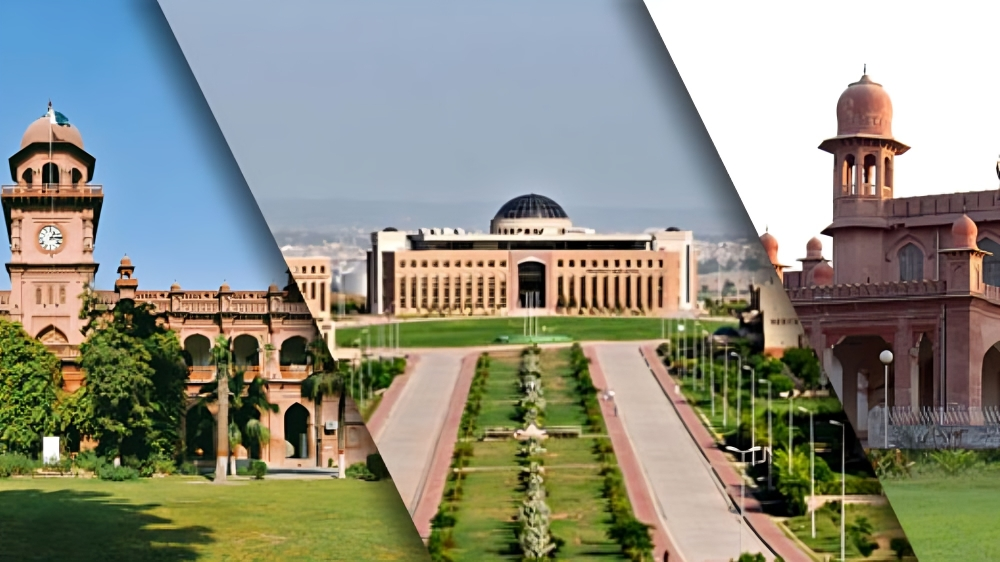Top Foreign Universities Show Interest in Opening Campuses in Pakistan

Foreign Universities Show Strong Interest in Opening Campuses in Pakistan
ISLAMABAD: In a promising development for the country’s education sector, several renowned foreign universities have expressed a keen interest in opening campuses in Pakistan, aiming to provide world-class education within the nation’s borders. This initiative is expected to enhance access to international education standards for Pakistani students and strengthen academic cooperation between Pakistan and global institutions.
According to recent reports by the Higher Education Commission (HEC) of Pakistan, discussions are underway with universities from countries including the United Kingdom, Australia, Malaysia, and Turkey. These institutions are exploring avenues to establish their physical presence in major Pakistani cities like Islamabad, Lahore, and Karachi.
A Leap Toward Globalized Education
The growing interest in opening campuses in Pakistan is seen as a strategic move that aligns with Pakistan’s Vision 2025 education goals. It aims to internationalize higher education by creating avenues for academic research, faculty exchange, and innovation hubs right within Pakistan.
Dr. Mukhtar Ahmed, Chairman of the Higher Education Commission, stated, “Our goal is to provide international-level education opportunities without forcing our students to go abroad. This move will help reduce brain drain and retain talent within the country.”
Educationalists believe this trend could significantly narrow the academic gap between Pakistan and developed nations. By embedding foreign expertise and global curriculum in local soil, Pakistan can fast-track academic excellence while offering affordable, high-impact learning opportunities.
Benefits for Students and the Economy
The establishment of international university campuses in Pakistan is expected to benefit students immensely. Local students will gain access to foreign curricula, globally recognized degrees, and exposure to international teaching methods — all at a fraction of the cost of studying abroad.
Moreover, this initiative has the potential to attract foreign students from nearby countries, transforming Pakistan into a regional educational hub. It will also create thousands of job opportunities in the academic and administrative sectors.
Economically, the education sector’s expansion is expected to bring in foreign direct investment, uplift real estate development around university campuses, and stimulate innovation-led entrepreneurship across multiple industries.
Policy Reforms Encouraging Foreign Investment in Education
The government’s recent policy reforms are playing a vital role in boosting interest in opening campuses in Pakistan. The Ministry of Federal Education has been working closely with HEC and foreign diplomatic missions to create investor-friendly regulations, reduce bureaucratic hurdles, and streamline the process for foreign institutions to register and operate in Pakistan.
One such development includes offering land on concessional rates in knowledge cities, tax benefits, and fast-track registration processes. These efforts have made Pakistan a more attractive destination for international academic institutions.
In addition, special economic zones (SEZs) dedicated to education and innovation are being proposed, where universities can co-exist with tech parks, research incubators, and student housing facilities, creating fully integrated academic ecosystems.
Universities in the Pipeline
Among the institutions reportedly in advanced discussions with Pakistani authorities are:
- University of Hertfordshire (UK)
- Monash University (Australia)
- Middle East Technical University (Turkey)
- University of Malaya (Malaysia)
These universities are considering dual-degree programs, faculty collaboration, and full-fledged satellite campuses. Pilot projects and feasibility studies are already underway in partnership with local universities.
Some institutions are also exploring hybrid models combining online delivery with physical classrooms. This blended learning approach ensures wider accessibility, especially in remote regions.
Boosting the Local Education Infrastructure
Beyond access to international degrees, the interest in opening campuses in Pakistan is expected to improve the local educational infrastructure. Foreign campuses will bring with them modern facilities, research labs, innovation parks, and a culture of academic excellence. This will create healthy competition, encouraging local universities to elevate their standards.
The presence of foreign campuses may also improve global rankings of local universities through strategic partnerships and knowledge exchange, enhancing Pakistan’s academic reputation globally.
Challenges to Address
Despite the enthusiasm, certain challenges remain. Issues like regulatory alignment, faculty availability, accreditation standards, and long-term sustainability need to be carefully addressed. Education experts emphasize the importance of robust quality assurance mechanisms to ensure that foreign campuses maintain their global standards.
Language barriers, local curriculum alignment, and social integration of international faculty also require thoughtful planning. There is also concern that tuition costs may remain out of reach for many unless scholarship programs and financial aid are widely offered.
Dr. Zubaida Khan, a senior education consultant, noted, “Pakistan must ensure that it becomes a partner, not just a host. We need to learn from best practices but also safeguard our cultural and academic sovereignty.”
Public and Private Sector Collaboration
The success of this initiative hinges on strong collaboration between the government, private investors, and foreign institutions. Public-private partnerships (PPPs) are being encouraged to provide funding, infrastructure, and policy support. Major real estate developers and education networks have already shown interest in facilitating these campuses.
One such example is the collaboration between Pakistan’s Knowledge Economy Task Force and the British Council, aimed at creating a roadmap for British universities to launch in Pakistan. British Council Official Site
Private education groups in Pakistan, such as Beaconhouse, Roots International, and The City School, are also exploring collaborative models with foreign institutions to bring joint programs and exchange pathways to their existing campuses.
Long-Term Vision
The long-term vision of this initiative is to transform Pakistan’s higher education sector and position the country as a destination for quality education in South Asia. It is expected that by 2030, at least a dozen top foreign universities will have operational campuses in Pakistan, contributing to research, innovation, and economic development.
Such transformation will also enhance Pakistan’s soft power, helping the nation strengthen cultural diplomacy and global goodwill through education exports.
If managed effectively, this wave of foreign university expansion could mark a pivotal shift toward a knowledge-based economy, helping Pakistan overcome its human capital deficit and prepare its youth for the digital and globalized future.
Conclusion
The rising interest in opening campuses in Pakistan marks a new chapter in the country’s educational journey. By welcoming global academic institutions, Pakistan is opening doors to a future where its youth can access world-class education without leaving home. This step not only democratizes education but also strengthens the nation’s intellectual and economic future.
As momentum builds, all eyes are on how swiftly these plans translate into reality — a reality where Pakistan emerges not just as a learner, but a leader in the global academic community.
The world is watching, and with the right steps, Pakistan could well become the next hub for higher education in the region.



